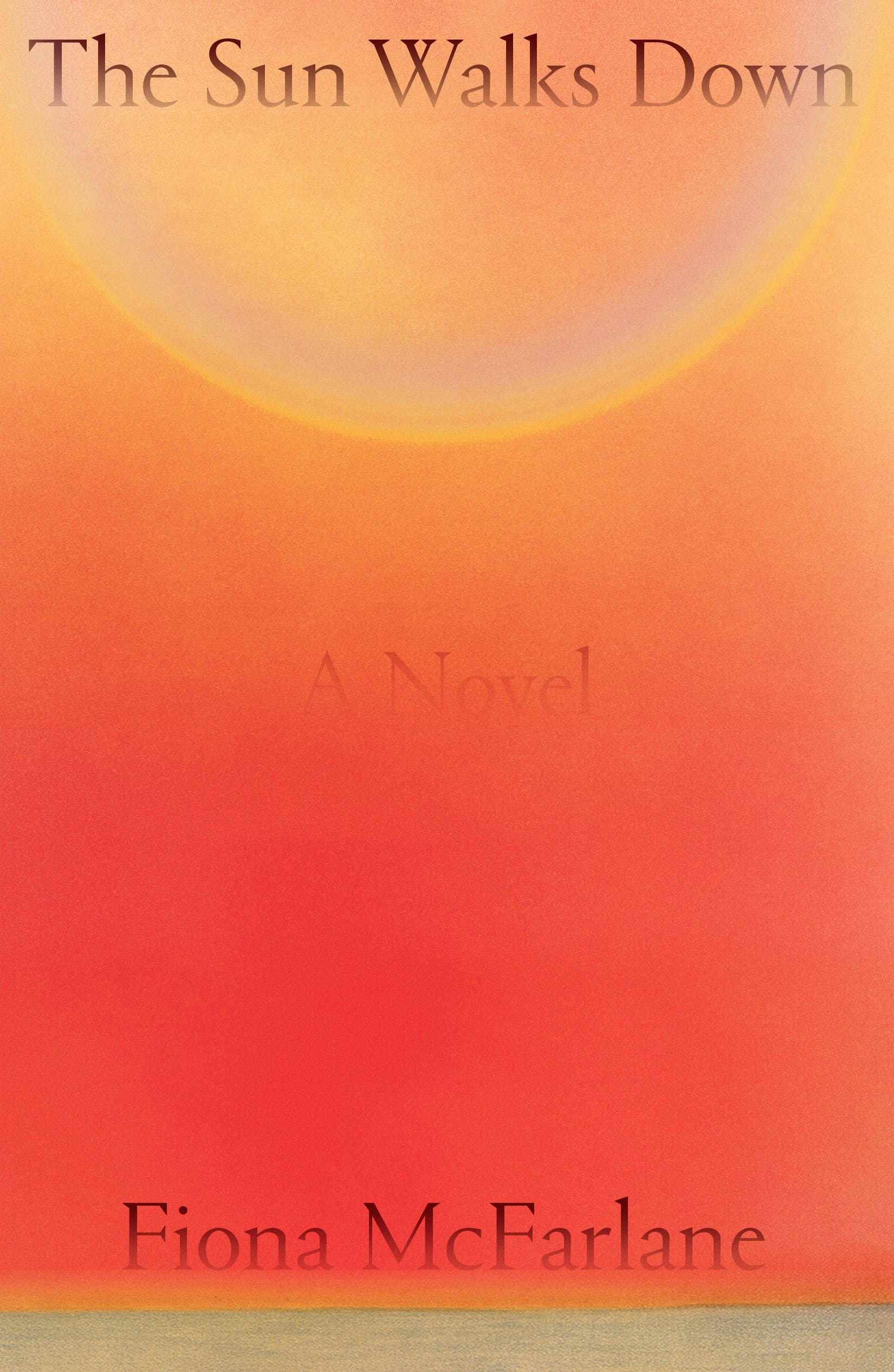Colony of South Australia, September 1883
The boy met a god by the hollow tree.
‘Go away,’ said the boy, and the god, formless, passed on in the direction of the red hill. Then the boy was free to hunt in the scrub for roosting hens. When he came upon the hens they flapped up as if they could fly, and he gathered their eggs in a basket. The boy was six years old and thin, with a vivid pointed face. He wasn’t pale, exactly—his skin browned in the sun—but the visible veins at his wrists and ears suggested a delicacy that the people he knew associated with pale children. There was so little of him. When his mother held him, his heart felt near. Light hair, lifting in the briefest wind. And not so delicate, in fact—a strong boy, a good runner. The name people called him was Denny, and he answered to it.
The boy was gentle as he settled the eggs in the basket. Then his mother wanted him close—he knew this, even though she hadn’t called his name. Nobody had ever told him about his mother’s deafness; she was simply his mother, which meant she heard little and spoke less. But the boy knew when she wanted him to go to her. She had finished hanging the sheets on the line behind the house, and the boy went to give her the basket of eggs; she took it, bent down to him, and pressed her face against his neck. Today she belonged to him entirely—all his sisters were at a wedding in town and his father was out planting parsnips.
The boy and his mam were alone and loving among the sheets. Then quick as a blink she straightened, turned her back, and went into the house, which always ate her up. The boy, following, wanted to help her churn the butter, but she made him put his boots on, she laced them tight, and she sent him out with a sack to gather grass and bark and twigs. He liked to collect things for the fire, and he liked to please her. The black dog, Mopsy, woke from her nap in the sun and looked as if she might come with him; but she heard Mam start the butter churn and went to supervise that instead.
The boy walked away from the red hill, although it was from behind the hill that his sisters would come home from town. The country he walked into was red and brown—desert country—but there was a haze of green over the top of it, because it was spring. At this time of day, the surrounding hills were white and yellow and green. A shrub scratched the boy’s shin and he followed, for a while, the deep course of a dry creek. He kneeled on its stony bed and saw ants carrying a large dead fly. The word that came to him was ‘housebound’, maybe because he’d heard his mother use that word about Mrs Baumann, who had large eyes, like a fly, and clean, folded hands, and sat in a chair with wheels on it as if she had neat grey wings tucked behind her. But the boy didn’t think of Mrs Baumann exactly; the word ‘housebound’ just dropped into the boy and went away again.
He rounded a curve in the creek and surprised a kangaroo. He knew the story of the kangaroo: once upon a time, it argued about food with its cousin the wallaroo, so now it stayed here on the dry, flat plain while the wallaroo lived up in the hills. The boy’s heart was big with sorrow for the kangaroo, which crouched very still and looked at him. It seemed to be waiting for something to happen. Then it turned and flew from the creek bed and the boy climbed out to follow it for its dung, which also burned. Really, he followed it because it was fast, because the boy was also waiting for something to happen, because he was six years old.
Soon, things would happen. Men would call his name in the night; there would be blood on a handkerchief, and fire on the red hill.
The boy looked north and saw a high dark wall over the ranges. The wall was moving towards him. It was made of dust, and when the dust reached him it hid the sun. The sun was there, the boy could see it through his narrowed eyes, but it was brown now, and silly: only as bright as a lamp or the moon. The dust rolled down from the north in secret colours, very soft, until the wind came up behind it. Then it stung. The boy held the sack across his face, as his father had taught him to do when the dust storms came, and he turned around and began to walk, and that’s how he got lost: trying to walk home in the dust.
When the storm had passed, his mother went out into the yard and spat red onto the red ground. She looked for him in the direction he had gone and saw no sign.
__________________________________
From The Sun Walks Down by Fiona McFarlane. Used with permission of the published, Farrar Straus and Giroux. Copyright © 2023 by Fiona McFarlane.













